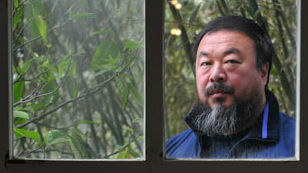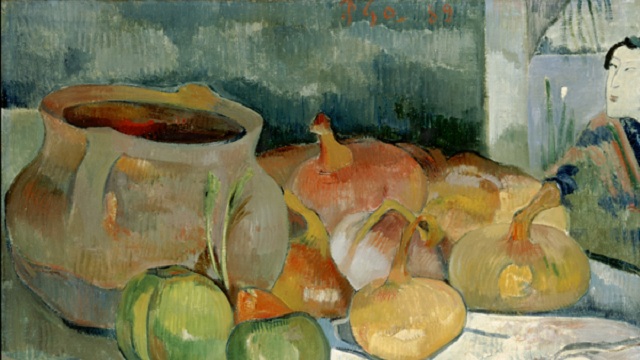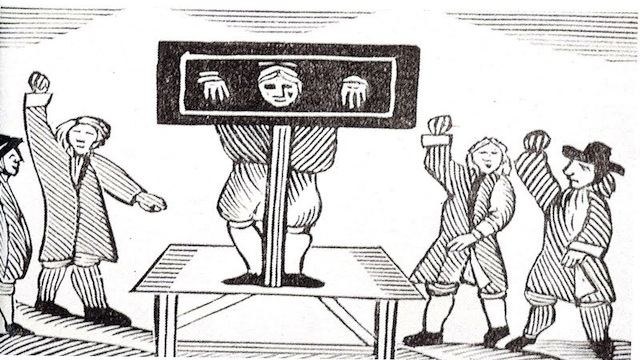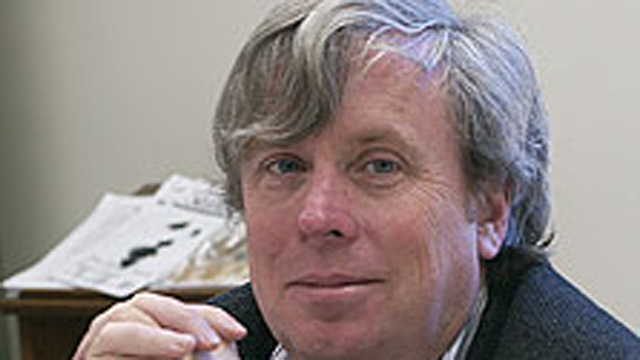One would expect the 150-year anniversary of the Italian state be something of a celebration. One would be wrong. The country is divided culturally, politically and economically.
All Articles
Chinese authorities have detained Ai Weiwei, an outspoken critic of China’s government and one of its most famous contemporary artists—he is one among dozens recently held by the state.
“Disorientation is lost of the East,” novelist Salman Rushdie has written, reminding us of the original meaning of “Orient.” In The Orient Expressed: Japan’s Influence on Western Art, 1854-1918, which […]
John Jeremiah Sullivan has written a beautiful, beautiful piece about David Foster Wallace in GQ. It isn’t easy to write about Wallace; how Sullivan chooses to do it is illuminating. […]
The Madden video game series seeks to hone a message that is difficult for many young football players to accept: get a concussion, and you are off the field for the rest of the day.
Believing in a supernatural being who monitored and judged anyone at all times encouraged people to avoid acting on their immoral impulses, helping them survive, says author Jesse Bering.
We live in a society obsessed with performance. Think of exams like the S.A.T. and the G.R.E. Such high-stakes tests, however, are often spectacularly bad at predicting performance in the real world.
When faced with the thought of death, people are more likely to believe in intelligent design, the idea that life on Earth can be explained by an “intelligent being” guiding the process.
The brain is always anticipating what will come next—for example, what someone will say. This explains why jokes are funny: they add a twist to information our brain was anticipating.
While losing work is stressful, recent findings show wellbeing associated with disengagement at work may result in an equal if not greater drop in wellbeing than unemployment.
No government has yet taken the next step of reshaping its policies to promote happiness, but clear patterns reveal that low taxes, freedom of speech and equality are good for wellbeing.
Listening to your favorite melodies and harmonies can trigger the brain to release large amounts of dopamine, a chemical that sends “feel good” signals to the rest of the body.
Johannes Kepler, Galileo Galilei and Isaac Newton revolutionized the modern world through scientific advance; these very different men had one thing in common: an unshakable belief in God.
That chronic pain and depression are so often bound together suggests a complex relationship, and the brain’s shared circuitry for social and physical pain may lie at its heart.
In a front-page story at today’s Washington Post, David Brown spotlights research on the comparative risks of nuclear and coal power. As Brown reviews, nuclear power is far less of […]
Sexual harassment may have become so commonplace for women that they have built up resistance to harassing behavior they consider merely “bothersome,” suggests a new study.
Research conducted by Arizona State University anthropologists finds an increasing number of societies express negative attitudes towards overweight individuals—a reversal of earlier trends.
Potentially dangerous food coloring has been removed from foods made by American companies—overseas. The coloring persists in the U.S. while the F.D.A. calls for more research.
China, the world’s largest consumer of cigarettes, is having another crack at kicking the habit. The Chinese government has announced it will ban smoking in enclosed public venues from May.
People who eat candy and chocolate tend to have smaller waists, weigh less and have a lower body mass index than those who don’t indulge in these treats, a new study says.
Scientists at New York University have combined two methods that scientists use to carry D.N.A. into cell nuclei. The result could help analyze proteins and ultimately improve gene therapy.
For decades, medicine has been dominated by independent doctors who owned their practices and worked night and day—today this is changing, along with the very concept of patient care.
New genomic analyses suggest that the most common genetic variants in the human genome aren’t the ones most likely causing disease, genetic experts at Duke University Medical Center report.
As African temperature zones shift due to global warming, tropical diseases like malaria are affecting new populations—lack of previous exposure means lower immunity rates.
Dr. Iqbal Choudhary of Pakistan’s Center for Chemical and Biological Sciences said recently that the use of biotechnology is vital for rapid agricultural and healthcare development.
Is this some kind of sick April Fools Day spoof? Arizona’s Republican governor reportedly has a bold new plan to pit fat Medicaid recipients against kidney-transplant candidates. Jan Brewer is […]
Following Congressional hearings this week on climate change, in a guest post today Ashley Brosius considers the origins of the partisan divide on the subject and suggests several possible paths […]
In a guest post today, Lauren Krizel reports on an event held this week in Washington, DC that gathered some of the city’s top chefs to discuss sustainability and the […]
Maybe the most provocative speaker (although not so much, maybe, to BIG THINK readers) at our conference at Berry next Friday and Saturday will be RONALD BAILEY–the libertarian proponent of […]
The Mets’ David Wright says he now has the confidence to be the vocal leader he’s never been, and the New York Post says it’s going to take that to get the Mets out of their hole.







